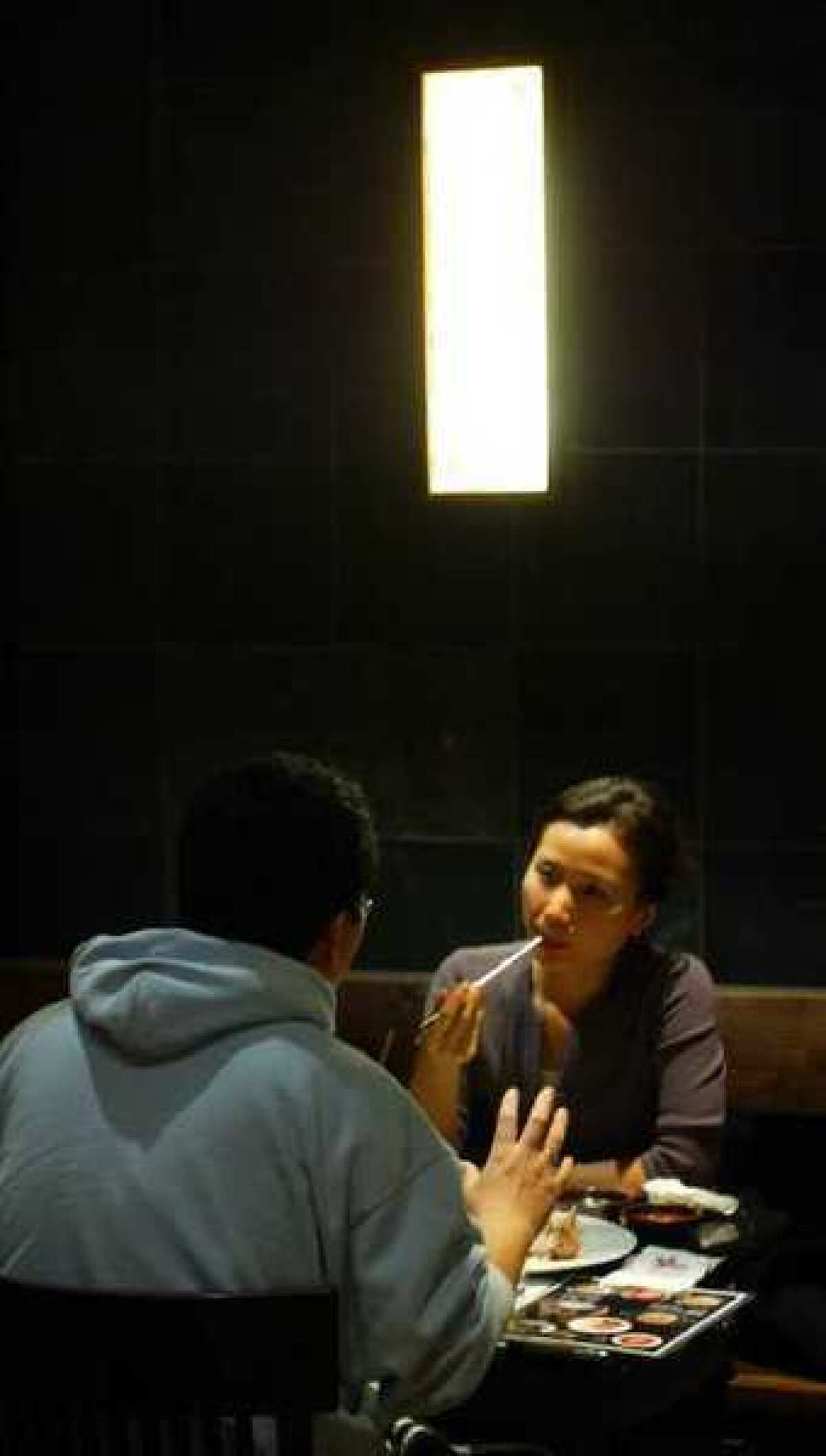Eating with an ex ‘can trigger sexual jealousy,’ study finds

- Share via
So, your significant other takes you for granted — and you think you might want to make him a little bit jealous, just to send a message. One way to do it would be to spend an hour with an ex.
If you really want to make him green with envy, make sure there’s a meal involved.
At least, that’s what new research, published Wednesday in the journal PLoS One, seems to suggest.
“Do people believe that sharing food might involve sharing more than just food?” asked coauthors Kevin Kniffin and Brian Wansink, both of Cornell University, in the report.
According to study leader Kniffin, who spoke briefly with The Times on Wednesday, the answer appears to be yes.
When he asked undergraduates to rate how jealous they would be when faced with a series of six hypothetical vignettes involving a mate meeting up with a former romantic partner for an hour — spending the time corresponding through email, talking on the phone or having a late-morning coffee, a lunch, a late-afternoon coffee or a dinner — the students’ responses indicated that meals elicit more jealousy than the other face-to-face interactions that did not involve food.
Phone conversations provoked more envy than e-mailing. Meals sparked more jealousy than coffees. A second study, asking how jealous respondents’ best friends might become when faced with the same six hypotheticals, garnered similar results.
Kniffin, who is affiliated with Cornell’s Dyson School of Applied Economics and Management, said that the team was surprised that women and men reported similar patterns of food-related jealousy.
Typically, he said, jealousy studies find that men respond more intensely to physical cheating while women respond more intensely to emotional or social cheating. The similarities between genders in this research suggested that people perceive both physical and emotional dimensions in eating.
Kniffin’s research focuses primarily on organizational behavior — not on the ins and outs of modern courtship. He said that the sexual jealousy paper provides a “back-door” way to study broader questions about cooperation, including whether eating together might promote cooperation among co-workers.
“This is another way of looking at the degree to which people understand meals to involve more than just eating together,” Kniffin added. “People view meals as more than just the concurrent consumption of calories.”




